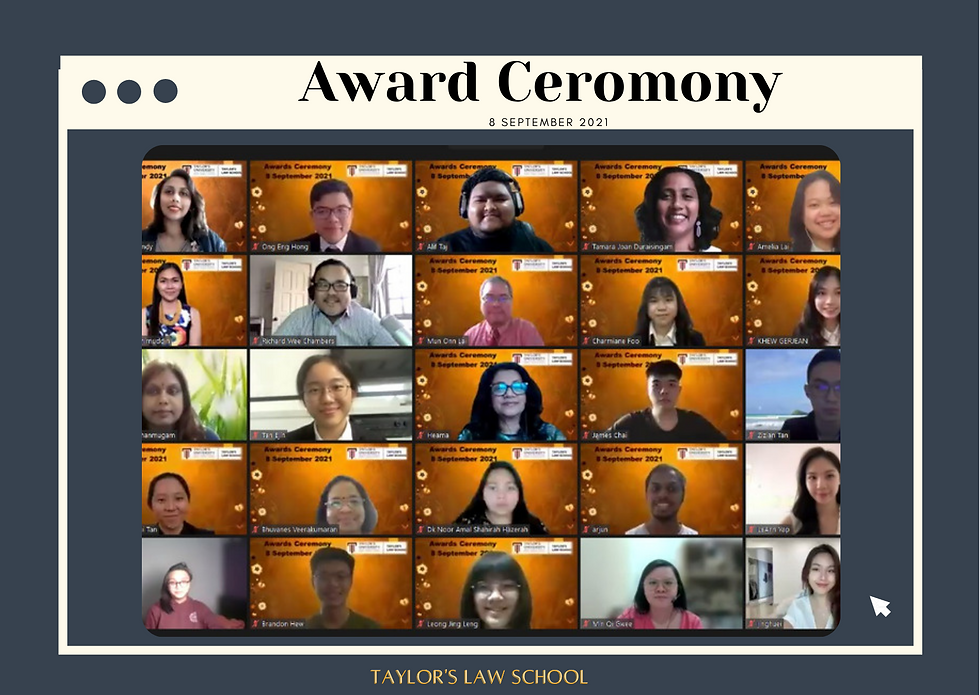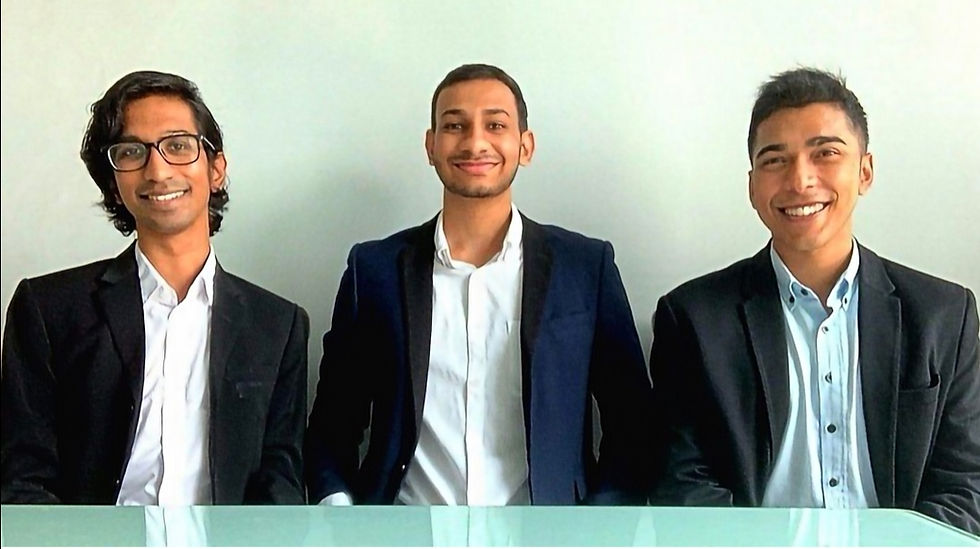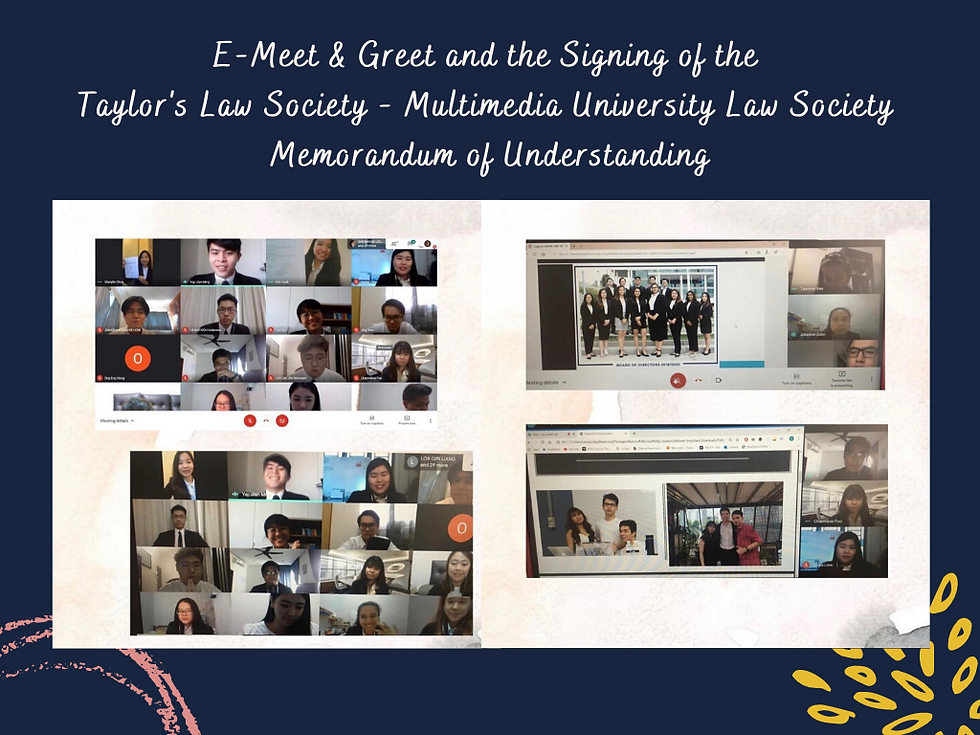Dialogues on the Law “DiaLAWgues” 2018 : Emeritus Professor Datuk Dr Shad Saleem Faruqi
- Lexicon Editorial Board

- Jun 9, 2019
- 2 min read
Updated: Mar 19, 2020
For the fifth as well as the last DiaLAWgue session in 2018, the Law School had successfully invited Emeritus Professor Datuk Dr Shad Saleem Faruqi, a Visiting Professor of Taylor’s Law School, to give a talk regarding the topic ‘Constitutional Amendments: Balancing Stability with Change’.

He began his speech by stating that the Federal Constitution is the supreme law of the land. Unlike any other ordinary law such as the Road Traffic Act, the Constitution should not be allowed to change too frequently - therefore, its amendment should not be easy.
Yet, at the same time its words should not be carved out in granite to obstruct growth and change to accommodate the felt necessities of time.
A balance is needed between stability and change. The method of amending should not be so difficult as to produce frustration nor so easy as to seriously weaken the safeguards of the Constitution.
Besides, Professor Faruqi explained the Basic Structure Doctrine. The Doctrine was invented by the Indian Supreme Court and the Indian Constitutional Law has a longer history than the UK Constitutional Law. The Doctrine limits the Parliament’s power in amending the Constitution. In other words, the Parliament is not allowed to alter the “basic structure” of the Constitution.
The Doctrine has been affirmed strongly in India in the cases of Golak Nath v State of Punjab AIR 1971 SC 1643, Kesavananda Bharati v Kerala 1973 AIR 1461 and Minerva Mills v Union of India AIR 1980 SC 1789 where the courts held that the power to amend the Constitution does not include the power to alter its basic structure or framework so as to alter its identity.
Other than that, he also mentioned the procedures for bringing changes to specific parts of the basic charter which include the simple majority votes of the members present and voting in the Dewan Rakyat and Dewan Negara. He also stated a special two-thirds majority of the total membership of each Dewan as another procedure. Moreover, consent of persons outside the Parliament would be needed for certain amendments. For instance, the consent of the Conference of Rulers would be needed for amendments of provisions under Article 159(5), the consent of Governors would be needed for modification to special rights of Sabah and Sarawak and the consent of state legislatures are also needed for alteration of the boundaries of a state.
Furthermore, Professor Faruqi also mentioned other modes of constitutional change which include creative constitutional interpretation, ordinary legislation, growth of constitutional conventions, emergency acts and ordinances and authoritative translations.

He ended his speech by saying that in the era after GE-14, many institutional reforms have been promised. Some do not require any constitutional amendments whereas others need a constitutional legislation with a two-thirds majority and in some cases, the consent of the Conference of Rulers. The extent of the reform to be accomplished is a matter of politics rather than of the law. He reiterated that one must also remember that reform is a journey, not a destination; a continuing process and not an isolated event.



Comments